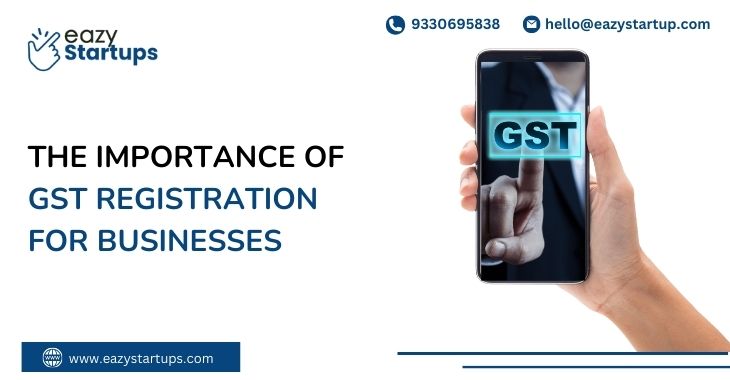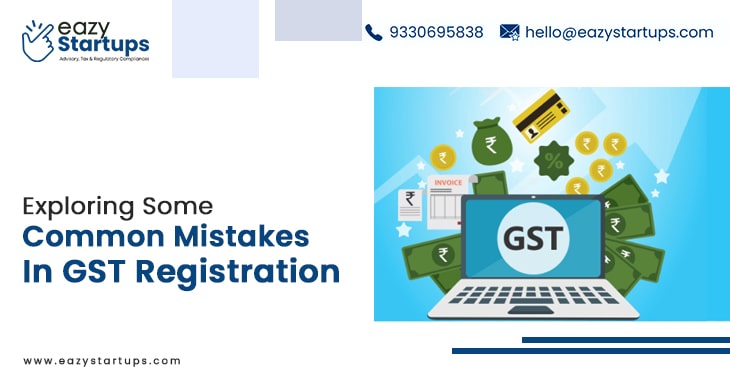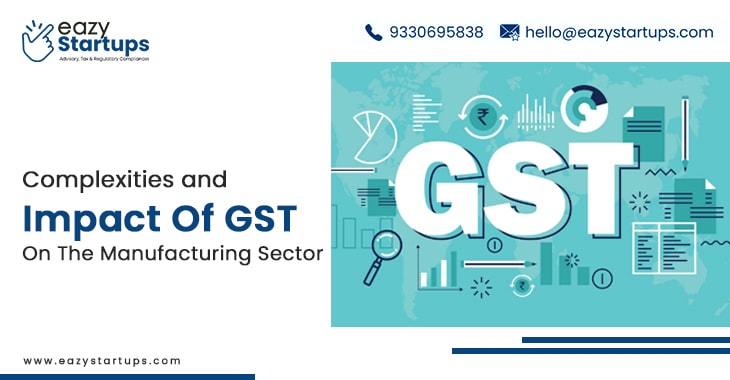The Goods and Services Tax (GST) has transformed the tax structure in numerous nations, including India. It has simplified and increased business transparency by streamlining the indirect tax structure. Notwithstanding the advantages, businesses must follow certain rules, such as cancelling GST registration. This article will explore what businesses need to know about GST registration cancellation. If you want GST Registration Cancellation Online in India, contact Eazy Startups. They can offer you the best services to apply for GST registration, cancellation, filling, etc.
Let’s discuss the matter in detail:-
- Reasons for GST Registration Cancellation
- Process of GST Registration Cancellation
- Implications of GST Registration Cancellation
Reasons for GST Registration Cancellation:
GST registration can be cancelled for various reasons, including:-
Closure of Business:
GST registration is extra and has to be canceled if a business closes or is sold.
Threshold Limit:
Companies must register for GST if their turnover exceeds the threshold amount. The registration may be canceled if the turnover is less than this threshold.
Voluntary Cancellation:
If a business decides it no longer wants to receive the benefits or is exempt from paying GST, it may voluntarily terminate its GST registration.
Non-compliance:
Failure to comply with GST requirements, including but not limited to late filing of returns or unpaid taxes, may result in registration revocation.
Process of GST Registration Cancellation:
The process for cancelling GST registration involves the following steps:-
Application:
The registered taxpayer must use the GST site to apply in the required format to cancel their GST registration. If you want to apply for GST Registration Cancellation online, contact Eazy StatUp.
Verification:
The tax authorities will check the application and may request more information or documentation if necessary.
Order for Cancellation:
The authorities will issue an order to cancel the GST registration if they are satisfied with the application and there are no outstanding liabilities.
Notification to Taxpayer:
The taxpayer will receive a notice detailing the cancellation of registration and its effective date.
Implications of GST Registration Cancellation:
Cancellation of GST registration has several implications for businesses, including:-
Ceasing Tax Liability:
When its GST registration is canceled, the company is no longer required to collect or pay GST on its supplies.
Input Tax Credit:
After the GST registration is canceled, businesses can no longer claim input tax credits for acquired products or services.
Compliance Requirements:
Businesses must adhere to any outstanding tax obligations or compliance requirements even if their registration is canceled.
Legal Requirements:
Companies must comply with any additional legal requirements resulting from the cancellation and turn in their GST registration certificate.
Conclusion
Businesses should take note of this important step, which is to cancel their GST registration per the rules established by the tax authorities. Businesses must comprehend the rationale, procedures, and ramifications of canceling their GST registration to facilitate a seamless transition and maintain compliance with tax regulations. To handle the intricacies of canceling a GST registration and steer clear of any financial or legal ramifications, it is advised that firms obtain expert advice. If you want GST Registration Cancellation Online in India, contact Eazy Startups. They can offer you the best services to apply for GST registration, cancellation, filling, etc.







Recent Comments